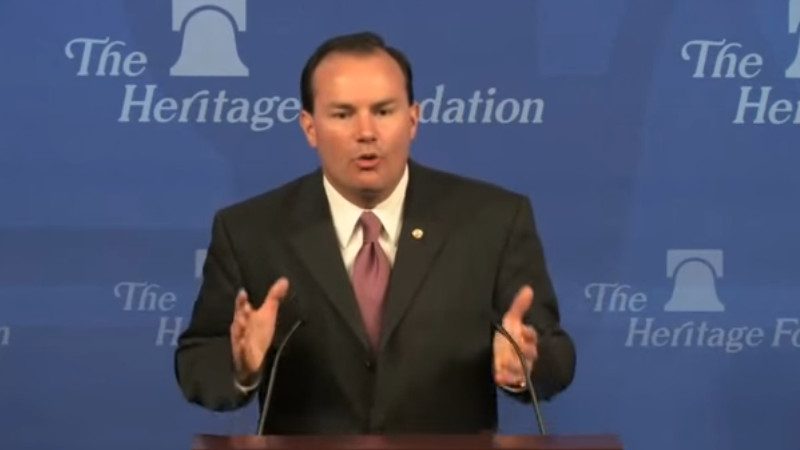The Heritage Foundation, a massive marketing and lobbying force for right-wing policies that is likely to have huge influence in the Trump administration, has launched a new initiative designed to roll back the power of the federal government’s regulatory agencies. Today’s event announcing the new initiative featured remarks by Sen. Mike Lee of Utah, who believes that much of what the federal government does today is unconstitutional.
Even as Heritage staffers prepare to funnel right-wing ideologues into influential positions in executive branch agencies, its new project will seek to dramatically reduce the power of those agencies to act to protect the rights, safety and interests of individuals and communities.
It bothers Lee and Heritage that Congress passes laws with broad goals, like reducing air pollution for example, and leaves it to experts at the Environmental Protection Agency to determine what that means in terms of regulating emissions of different kinds of toxins. Lee says that usurps the Constitution’s delegation of lawmaking powers to Congress, and he’s started a group called the Article 1 Project (A1P) to work on what he calls an agenda of government reform and “congressional re-empowerment.” At the same time, Lee said he supports congressional term limits, a step that would limit the accumulation of expertise by elected officials.
Asked whether his congressional colleagues have the stomach to take this step, he said not enough of them do but he insisted “that’s where Heritage can come into play”—a not-very-subtle reference to the organization’s political arm’s reputation for browbeating Republicans who stray from its far-right agenda. Heritage is led by former Sen. Jim DeMint.
Lee wants Congress to pass and Trump to sign the REINS Act, which says that any proposed regulation that has a significant economic impact cannot take effect unless houses of Congress act affirmatively to pass it into law. His A1P is also pushing the Separation of Powers Restoration Act, which would “eliminate lock, stock and barrel” what is known in the federal court system as “Chevron deference,” the idea that the courts defer to the expertise of administrative agencies unless an action is unambiguously violating the intent of a statute. (Here it’s relevant to recall that Trump’s list of potential Supreme Court nominees was compiled by Heritage and the Federalist Society, and that it includes Lee.)
Lee was followed by David Azerrad, director of the B. Kenneth Simon Center for Principles and Politics, one of the programs that falls under the umbrella of the new institute. Azerrad said the initiative is necessary because there is widespread ignorance even among college graduates about the Constitution and structure of government; because liberals are arguing that their socialist agenda is constitutional; and because the current government operates largely outside the Constitution. Azerrad said “no plausible reading” of the Constitution could support the administrative state. He says the project will promote republicanism, separation of powers, federalism and the rule of law.
His message to conservatives was to think of the attack on administrative government as a long-term battle that will not be solved Star Wars-style with a couple of missiles fired down the Death Star’s exhaust port. It will take more than any single law or Supreme Court ruling, he said, to rebuild what he called “limited constitutional government.”









